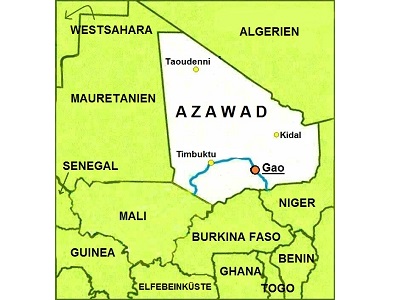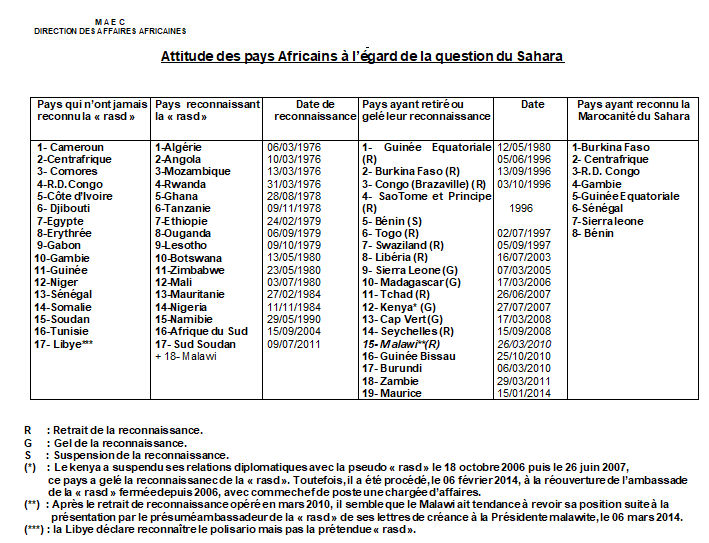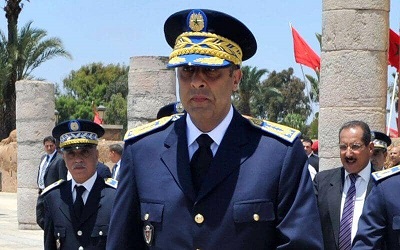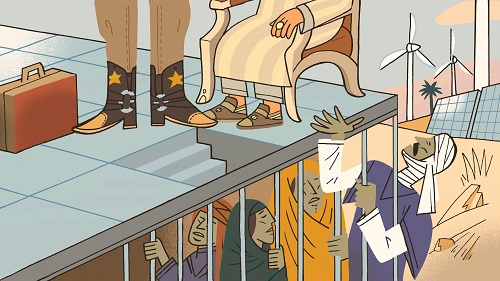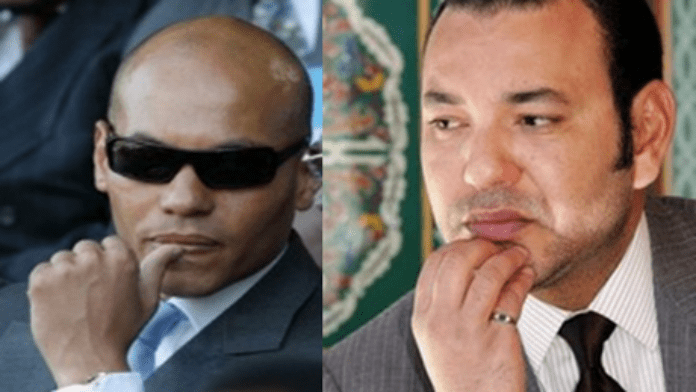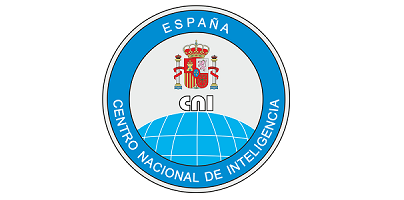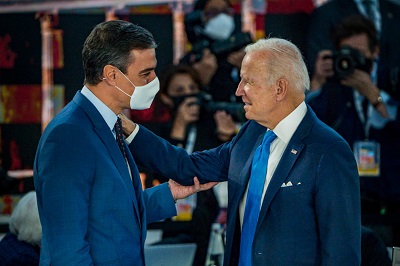Israel, Mali, Azawad, Tuaregs, Algeria, Morocco, Berbers, Libya, Tunisia, Niger, Sahel,
On April 27, 2012, Anna Mahjar-Barducci, an Italian-Moroccan journalist and author, president of the Rome-based Association of Liberal and Democratic Arabs, in an article published in Haaretz under the title « Malian Azawad rebels deserve our support », called for support for a Tuareg state in the Malian region of Azawad. What interest would the author have in defending the independence of Azawad? Is there anyone behind this article? Probably Morocco, the author’s country of origin, as it is known for its manipulation of the community in Europe. Here is the full text of the article.
Mali’s Azawadi rebels deserve our support
Now that Azawad has become a reality, it is clear that North Africa can no longer be ‘Al-Arabi,’ as it now includes a state that is geographically and culturally part of the Maghreb but declares itself Berber. That is a situation that is unacceptable to Arab countries.
By Anna Mahjar-Barducci
There is a new country in North Africa, but no one wants to recognize it. On April 6, the National Movement for the Liberation of Azawad, known by its French acronym MNLA, unilaterally declared the independence of the State of Azawad from Mali. However, the emergence of a new state faced immediate opposition. It wasn’t only Mali that panicked. Azawad, a desert region twice the size of California, with considerable reserves of oil, also faces obstruction from neighboring Arab countries and a hostile international press.
The MNLA is made up principally of Touaregs, part of the Berber people, the indigenous ethnic group of North Africa. The Berbers (who call themselves imazighen, meaning « free people, » in their language ) lived in the region before the Arab invasion of the eighth century and today are spread between Morocco, Algeria, Libya, Tunisia and in the Sahel region.
Despite being the original inhabitants, the Berbers, a majority of whom are Muslims, have been subjected to humiliation and discrimination, especially in Algeria, where the regime has systematically pursued de-Berberization and Arabization policies, excluding Berbers from equal access to government services and political power. Hence, the declaration of independence of a Berber state was a slap in the face to North African countries like Algeria, which is pushing the idea of Al-Maghreb Al-Arabi, an Arab North Africa with no Berber heritage.
Now that Azawad has become a reality, it is clear that North Africa can no longer be « Al-Arabi, » as it now includes a state that is geographically and culturally part of the Maghreb but declares itself Berber. That is a situation that is unacceptable to Arab countries.
Azawad’s independence provokes additional fears. Neighboring countries are actually alarmed that the new state could inspire a « Berber spring » across North Africa, with other imazighen asking for equal rights and/or independence. It would not be the first time that the Berber population revolted against a central government: That happened in Algeria in 2001, when local Berbers demanded democracy and improved social conditions. That and other uprisings, however, have been systematically repressed with violence by Algerian police.
Arab governments are hence joining forces with Mali to fight the MNLA and to « wipe » Berber Awazad « off the map. » One of the main means for doing this is by spread of disinformation.
When the independence of Azawad was declared, some international media outlets reported that the MNLA was an Islamist group that had relations with Al-Qaida in the Islamic Maghreb. This baseless rumor was soon debunked. The MNLA is actually a secular movement with no religious agenda.
Next, the disinformation machine spread a rumor that the MNLA had lost control of all of Azawad, and Al-Qaida, jihadists and Salafists had taken over the region. One news agency wrote that a new Islamist Tuareg-led group, Ansar Dine, had taken control of Gao, the transitional Azawadi capital, situated on the Niger River, by far the largest source of water for Azawad.
About the same time, the French magazine Jeune Afrique published an interview with the leader of Ansar Dine, Iyad Ag Ghaly, who denied that his movement was in Gao. He also specified that he is not interested in independence for Azawad, as he recognizes only Mali and Sharia law. The same disinformation was at work elsewhere, as well: That same day, news agencies were assessing that the MNLA had been pushed out of Timbuktu by Ansar Dine, a video uploaded to social networks showed MNLA soldiers in front of the airport.
The MNLA, for its part, says it is still in control of Azawad, and recently stated that it will soon announce a transitional government. There is, however, a serious risk of destabilization if Azawad isn’t officially recognized, and soon. All the neighboring countries have interest in seeing Azawad descend into chaos, so that the international community will support reunification with Mali. Azawad and the MNLA will hence be left to fight jihadist groups on their own, when what they need is the help of neighboring countries.
In the meantime, Mali, which is now ruled by a transitional president after a coup in Banako, the capital, has threatened « total war » against the MNLA. Mali, which systematically repressed the Tuareg and other Azawadi minorities, is now indiscriminately arresting and killing « red-skinned » Berbers within its reduced borders. France, the old colonial power, is forcefully opposing Azawadi independence and calling for a « compromise »: autonomy for the region. Autonomy, though, is not the solution, as it would not guarantee an equal division of the area’s resources, which include oil and access to budgets that would allow it to fight droughts. France and the international community would do better to support the struggle for self-determination of the Azawadi people as they have done for other nations. Only independence will ensure stability.
Anna Mahjar-Barducci, a Moroccan-Italian journalist and author, is president of the Rome-based Liberal and Democratic Arabs Association, which promotes civil liberties and immigrants’ integration in Europe.
#Mali #Azawad #Tuaregs #Algeria #Niger #Tunisia #Libya #Berber
